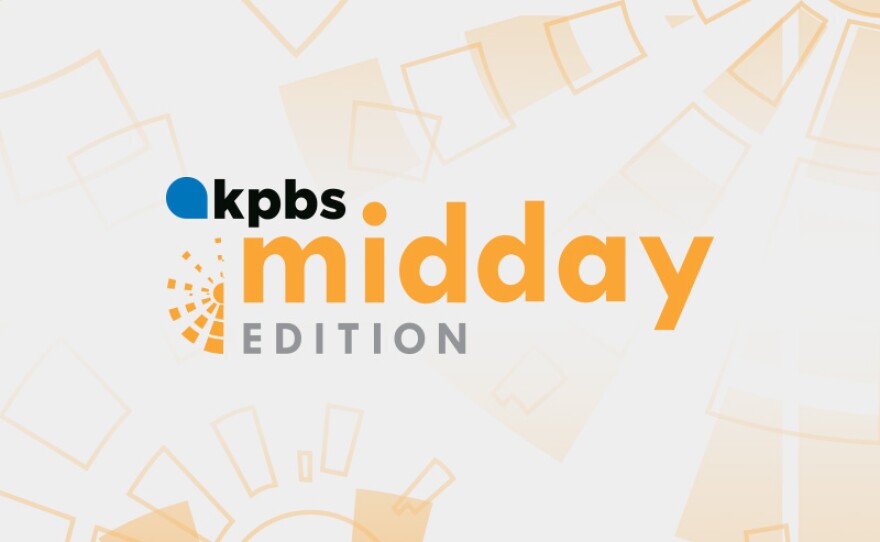Millions Set Aside For Rent Relief In County But Some Landlords Didn’t Take It
Speaker 1: 00:00 Nearly 1300 households in San Diego County were denied rent relief last fall because their landlords refuse the money or miss deadlines to file paperwork. I new source investigative reporter Cody Delaney says a new state law aims to change that. Cody. Welcome. Thank you. So what prompted this change in law? Speaker 2: 00:21 The non-profits are the ones that were raising the alarms and they were the ones that were saying, Hey, there's a problem here. Either landlords don't understand they're not participating. And I think that's really what was the change in this program and that's kind of what inspired the change in the state law. Speaker 1: 00:40 So why did so many landlords refuse rental relief? Speaker 2: 00:45 You know, that's, that's a great question. And we don't really know because landlords weren't required to explain. Um, but what I can say is the vast majority of landlords involved in the county's program, either miss deadlines to register for the program, or they didn't provide the necessary documents to collect the money in time. And, you know, advocates for rental property owners say most of these folks likely didn't have the time to pull everything together because for many of them providing housing, isn't their full-time job. So Speaker 1: 01:17 How does this new program then address Speaker 2: 01:19 That as a state law passed in January that created new rules for how these programs should operate. This time, landlords are offered 80% of what's owed to them in back rent, and they have to agree to forgive the remaining 20%. If they refuse those terms, the tenant will get a direct payment of 25% of what they owe and rent. And as long as the tenant gives their landlord, that money there'll be protected from eviction and the state's largest landlord group, the California apartment association, there they're urging landlords to accept the 80% saying that's likely the most they'll ever be able to collect. Speaker 1: 02:00 I mean, tell me a bit more about what landlords are experiencing Speaker 2: 02:04 Right now. So some of the landlords that I've talked to, some of them haven't collected any rent. And since last March, since the beginning of the beginning of the pandemic, you know, and throughout that time, they're, they're still expected to pay mortgage. They're still expected to, you know, if they pay utilities, they have to keep the lights on and keep everything running. So for, for landlords, they're experiencing a burden, just like tenants, the what, Speaker 1: 02:29 What types of situations are they dealing Speaker 2: 02:31 With right now? Yeah, people are struggling. Um, uh, SANDAG report released this month, said one in four people who are working in jobs that don't require a college education are still out of work. We recently spoke with a tenant and Imperial beach named Patty Mendoza. She's a single mom with two children who is laid off from her non-emergency medical transport job. Last April. Her previous landlord actually participated in the county's first rent relief program last fall. And she was able to receive $3,000 to cover back rent in December. Um, but she's still out of work and hasn't been able to make any rent payments and her apartment building has since changed owner ownership. So she's, she's applied to the new, the county's new program, but her new landlord has already told her to leave by April 10th. So, you know, that's definitely causing some stress for her and her family. Speaker 1: 03:26 And, and, you know, for P for people who are struggling, they're on the verge of eviction. Like the one you just mentioned will this resource come in time. Speaker 2: 03:36 Yeah, well, the, the, the new law extends the eviction moratorium to July. And if Mendoza's landlord does in fact decide not to participate, she'll end up receiving a direct payment of 25%. And as long as she pays her landlord with that money, she'll be protected from eviction until July. Um, and her landlord under this new law would be required to accept that money, Speaker 1: 04:01 How much money is available for this relief program? Speaker 2: 04:06 Because the money was based on population. Uh, the San Diego region received more than $211 million from the state and federal governments, specifically the County, as well as the cities of San Diego in Chula Vista all received money for their own rental relief programs. Speaker 1: 04:22 Walk us through the process then to get this rental assistance. Speaker 2: 04:27 Yeah. A number of factors determine a tenant's eligibility, but the big one is whether you're whether or not you fall within a certain threshold for income. So if you have a family of four, that would be $92,400 a year. And if you live in the cities of San Diego or Chula Vista, you can go directly on their websites, the city websites, and, and navigate there and find, find the programs through there. If you're a tenant that lives any other part in the County, just go ahead and, uh, apply through the county's website. Speaker 1: 05:00 I've been speaking with Cody Delaney, a reporter with I new source Cody. Thank you very much. Thanks Speaker 2: 05:06 So much for having me.


